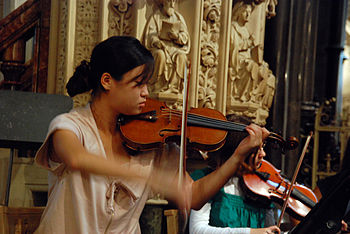
(Affiliate Link)
Quote by Geoff Colvin in chapter 2 of his book “Talent is Overrated: What really separates World-Class Performers from Everybody Else“:
“By age twelve, the researchers found, the students in the most elite group were practicing an average of two hours a day versus about fifteen minutes a day for the students in the lowest group, an 800 percent difference…nothing it turned out, enabled any group to reach any given grade level [of musical ability] without putting in those hours…To put the results in their starkest terms: Shown five groups of students, one of which won positions at a top-ranked music school and one of which gave up even trying to play an instrument, we would all say that the first group is obviously immensely more talented…but…they were not.”
As it turns out even for children whom people would normally label as precocious in their early childhood ability to carry out a tune, that it would have little to no impact on their future ability to be world-class instrumental players. It seemed that without severe and extensive training, no amount of preciousness or innate ability in a child could allow him to avoid the same amount of effort that an otherwise average child would need to in order to become just as amazingly great. The conclusion therefore is that the super-talented are grown, not born, into their superhuman performance abilities. This principle of talent applies to all other fields of human talent.
My personal (not the author’s) added caveat to parents is to be careful about investing yourself in a skill-set for which you think your child has innate talent when it might have no practical future or use in their adult life. To become outstanding in some fields, your child would still have to put in 10,000 hours of hard dedicated work, but there might be little room to make a living or even to perform that talent for others for free. There might already be too many people that good and adding your child to that crowd is not adding much more to the world. That talent pursuit in an already crowded room of performers is not a “free” opportunity to your child as pursuing it would mean not having time becoming great in a field where others wholeheartedly welcome your child.
So when I recommend developing talent, I mean it should be talent that will bring great ADDED value to others. This is why I recommend you work through the guide “How to Discover and Develop Your Child’s First 100 Hours of Talent” so you avoid the pitfalls of latching on to a flamboyant, but completely irrelevant talent.



